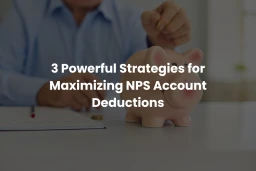Financial Dilemma: Down Payment Savings vs. Student Loan Repayment
Navigating the path toward homeownership often intertwines with the burden of existing student loan debt. For those eyeing their inaugural home purchase, the pressing question emerges: Should you focus on expediting student loan repayment, diligently save for a down payment, or ambitiously strive to achieve both simultaneously? This blog delves into the complexities of this financial crossroads, aiming to provide clarity amid the decision-making process for aspiring homeowners burdened with student loan obligations.

Prioritizing Down Payment Funds
Considerations favoring prioritizing savings for a down payment entail several key points:
Potential Cost Benefits: Depending on your location, property choice, and financial situation, homeownership might prove more cost-effective than renting, considering factors like rising housing prices, interest rates, and rental costs.
Nature of Student Debt: Student loans often offer longer repayment periods and comparatively lower interest rates compared to other debt types, potentially making them less urgent to clear compared to higher-interest debts.
Mortgage Advantage: A substantial down payment reduces the overall mortgage amount, potentially making it more beneficial to save for a home instead of aggressively paying off a low-interest student loan.
Loan Repayment Options: Exploring options like student loan forgiveness or income-driven repayment plans might lead to reduced monthly payments, allowing for a balanced approach between down payment savings and debt repayment.
Prioritizing Student Loan Funds
Opting to prioritize the repayment of your student loans carries several compelling rationales:
Interest Savings: Procrastination in settling student loan debt accrues additional interest costs. Speedily clearing this debt, especially with higher interest rates, translates to substantial savings in the long run.
Variable Interest Rates: Variable interest rates on student loans tend to increase over time, amplifying overall expenses. Timely repayment shields against these potential escalating costs.
Credit Report Impact: Complete repayment of student loans eradicates the debt from your credit report. While not a dominant factor, eliminating this debt can positively influence your credit rating.
Psychological Relief: Debt, regardless of type, often carries psychological stress. Some individuals prioritize entering the home-buying process free from any existing debt burdens.
Doing Both
Balancing student loan repayment with saving for a down payment demands a strategic approach. Here's a guide to effectively manage both:
Debt Assessment: Compile a comprehensive list of all debts, detailing their principal, interest rates, and minimum monthly payments. This includes various debts like car loans, credit cards, and student loans.
Prioritize High-Interest Debts: Focus on settling debts with the highest interest rates initially. Allocate substantial payments to these while meeting the minimum payments on other debts. Once the highest interest debt is cleared, direct those payments to the next in line, fostering a cascade effect towards debt clearance.
Segregate Savings: Create a dedicated savings account for your down payment funds. Choose an account with a competitive interest rate or explore investment options for potential growth, acknowledging the associated risks.
Consider Refinancing or Consolidation: Explore options to refinance or consolidate your student loans. This could potentially reduce payments or interest rates. Assess eligibility for income-based repayment plans, although note that mortgage lenders typically consider your standard repayment plan for calculating debt-to-income ratios.
Balancing Act: Evaluate your financial position regularly. While saving for a down payment, ensure your debt repayments remain manageable. Prioritize maintaining a healthy financial status over acquiring new debts, especially when planning for a substantial investment like a home.

Saving Strategies
Accelerate your down payment savings with these effective strategies:
Automate Your Savings: Set up automatic transfers from your checking to your savings account. Treating savings as a recurring expense increases the likelihood of consistent contributions.
Channel Windfalls: Direct unexpected cash influxes like work bonuses, tax refunds, or rebates straight into savings. By resisting the urge to spend this money, you fast-track your savings goals.
Trim Expenditure: Review your expenses and identify areas to cut back. Allocate these saved funds towards your down payment. Consider reducing spending on entertainment, dining out, subscriptions, lavish vacations, and clothing. For renters, exploring the option of temporarily living with family (with their consent) could save significantly on rent expenses.
Explore Additional Income: Consider taking up a part-time job to bolster your savings. The additional income can be dedicated entirely to your down payment fund. Alternatively, negotiate a raise at your current job or take on overtime hours to increase your income stream.
Also read: How to Invest in an Index Fund in India?
The Bottom Line
Balancing between saving for your first home's down payment and tackling student loan debt doesn't always demand an either-or choice. Flexibility and periodic reassessment can be your allies. Circumstances shift, and what seems unattainable now might become achievable in the near future. Stay adaptable, regularly review your situation, and be ready to adjust your plans accordingly. Remember, persistence in saving for both goals is key—neither is out of reach with thoughtful planning and perseverance.
Follow us on Instagram.









